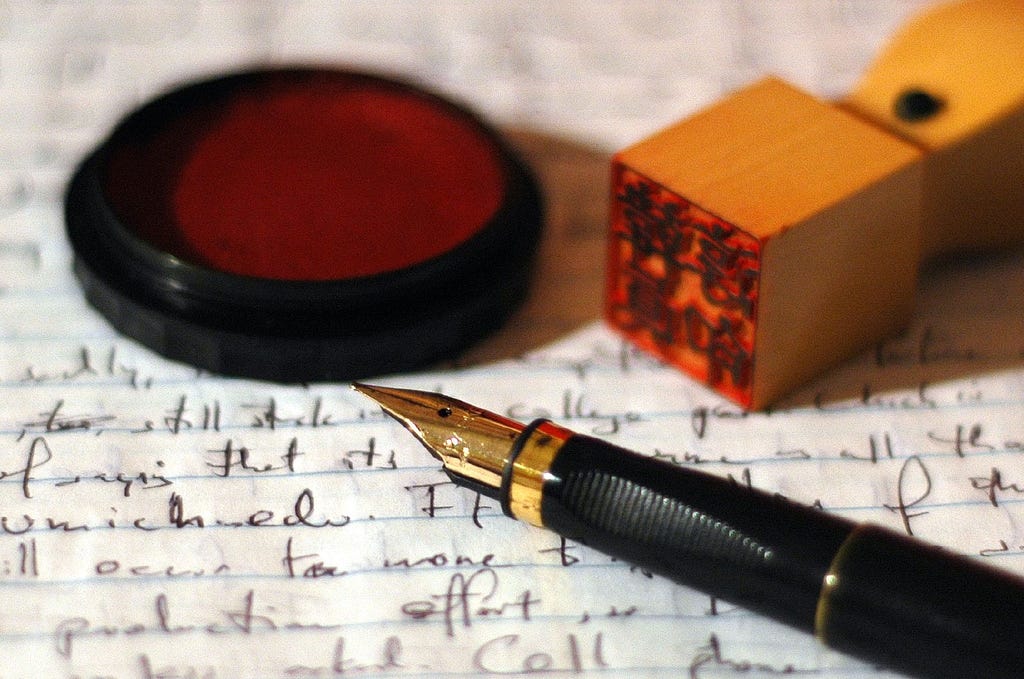Write Less, Not More: How to Slice and Dice Your Content
One of my favorite essays on writing is, "Shitty First Drafts" by Anne Lamott. I read it in college, and it changed the way I write. Years later, it still has a profound effect on me. Lamott's thesis is simple: All first drafts suck, so get it over with.
One of my favorite "essays on writing" is by Anne Lamott. When I read it in college, it forever changed the way I approached the craft. A decade later, it's still having a profound effect on me.

Photo Credit: LarimdaME via Compfight cc
Lamott's thesis is simple: All first drafts suck, so get it over with. The point is to dismiss the myth that says you can write something amazing on your first attempt or that you should even attempt doing so. Such an approach removes the mysticism of writing and relieves the pressure to pump out a piece of pure genius at the start.
I think we need more of that.
Most writers want to be geniuses. There's no question about it. Writers, at least the ones I know, want to be remembered for their words; they want to leave a legacy. But very few believe a dull, drawn-out process will get them there. Ironically, that's precisely what it takes to get your name listed in the annals of history.
You have to do the work.
When it comes to writing, I am the world's least patient person. I want everything I write to be amazing now, not later. But here's what I'm learning: Genius is something very simple but not easy. It's less a result of inspiration and more a byproduct of effort.
So what does that look like, practically?
How to get your words remembered
Do the sayings of Confucius, Emerson, and Jesus remain with us today because they're long and exhaustive, or because they're concise and profound? The latter, of course. History remembers our words not for how much we said, but for the weight of what we said.
Take the Gettysburg Address, for example. One of the most famous speeches in American history, this brief oration clocks in at just under five minutes. Initially, Lincoln was criticized for his brevity (at a time when the length of a speech was often equated with quality). But over a century later, most Americans can easily quote the iconic beginning:
Four score and seven years ago...
Think of every famous movie line, political speech, and quote you've ever heard. Why did it stick with you? Was it because of the length of the content? Usually not. Great communicators present their points in the most concise and challenging way possible. They rid themselves of any distractions that interfere with the core message.
I want to be that kind of writer, the kind that cuts the fluff and focuses on the meat of what I have to say. And the only way to do it is to write a terrible first draft.
Where to begin
You can't edit anything until you have a first draft. I don't put a lot of stock into spurts of inspiration or sudden strokes of genius. For me, "genius" is the stuff that happens over time, a result of the long, hard process of consistently showing up to do your work.
Sure, you might stumble upon some random nugget at three a.m. But what will take it from inspired to published? Even genius needs a process to purify raw ideas into complete concepts.
Most successful writers go through a rigorous process of shaping and reshaping their content before they have something worth sharing. How do they do this? They write every day. They share their work with a friend. They edit, tweak, and ship.
So here's what you need to do:
Commit to writing. Something, anything. Maybe it's just a sentence or the title to your next blog post. But get it down. Don't worry about quality or even quantity. Just write.
Write to get it out of your brain and onto paper (or screen). Do it now.
Start slicing and dicing, cutting and chopping until what you have looks nothing like what you started with. But that's okay because what you started with was a really bad first draft.
The bottom line is this: Write less, not more. In order to do this, ironically, you will write more than you ever thought you should. And then you will kill your darlings. It's all part of the process. Slicing down to only the essentials is, after all, how you get to genius.
So what're you waiting for? Grab a pen and get to work. And don't forget that genius is more about process than epiphany.
How have you learned to slice and dice your content to get down to your own genius? Share in the comments.


